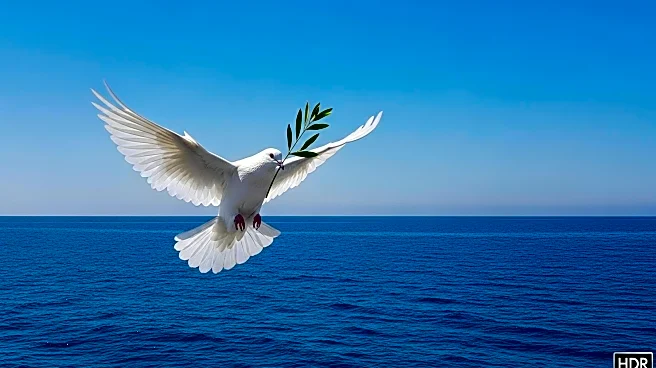What is the story about?
What's Happening?
Ataa Jaber, a former captain of Israel's U21 soccer team and current player for the Palestinian national team, has publicly expressed support for the Global Sumud Flotilla. This initiative, which includes activists like Greta Thunberg, is currently sailing towards Gaza. Jaber's backing highlights his alignment with the flotilla's mission, which aims to draw attention to the situation in Gaza. The flotilla is part of a broader movement advocating for Palestinian rights and challenging the blockade imposed on Gaza.
Why It's Important?
The support from Ataa Jaber, a prominent sports figure, adds significant visibility to the Global Sumud Flotilla's cause. His endorsement may influence public opinion and increase awareness about the humanitarian issues faced by Gaza's residents. The involvement of high-profile activists like Greta Thunberg further amplifies the flotilla's message, potentially impacting international discourse on the Israeli-Palestinian conflict. This development underscores the role of sports and celebrity endorsements in political and social advocacy.
What's Next?
As the flotilla approaches Gaza, it is likely to attract media attention and provoke reactions from various stakeholders, including Israeli authorities and international human rights organizations. The journey may lead to diplomatic discussions or interventions, depending on the flotilla's reception upon arrival. The continued support from influential figures could sustain momentum for the flotilla's objectives, potentially leading to further initiatives aimed at addressing the humanitarian situation in Gaza.
Beyond the Headlines
The involvement of athletes and activists in political movements highlights the intersection of sports, celebrity influence, and social justice. This trend reflects a growing willingness among public figures to leverage their platforms for advocacy, challenging traditional boundaries between sports and politics. The Global Sumud Flotilla's mission also raises ethical questions about the effectiveness and risks of direct action in conflict zones.
















